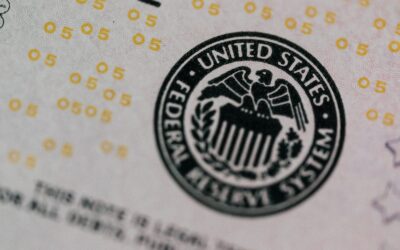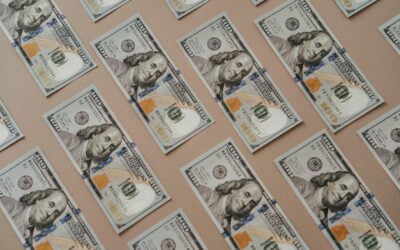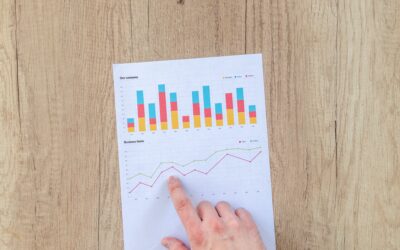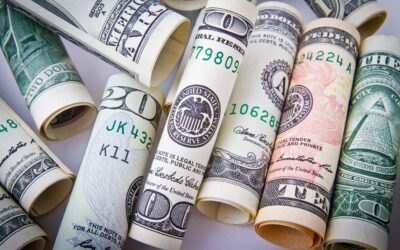It’s the Economy, Stupid
You’ve heard the saying, “it’s the economy, stupid.” But what does that mean, and what is it referring to? George G breaks down what matters!
Listen to us On
About the Episode
You’ve heard the saying, “it’s the economy, stupid.” But what does that mean, and what is it referring to? George G breaks down the most important economic data, which is the data most applicable to everyday Americans, and makes his case for how our economy is really doing!
Did you get anything out of this episode? Do us a solid and leave a review:
https://ratethispodcast.com/alignedmoneyshow
Learn more and engage at MoneyAlignmentAcademy.com, Twitter, LinkedIn, Instagram, YouTube and Facebook.
Buy George G a coffee (he loves coffee)
https://www.buymeacoffee.com/lifeblood
Have George G speak
https://moneyalignmentacademy.com/speaking/
Financial literacy and wellness for individuals, families, and companies
https://moneyalignmentacademy.com/
Find George G’s books here
The Aligned Money Show is the podcast for Money Alignment Academy, copyright 2024.

George Grombacher
Host
Episode Transcript
today’s letter today’s letter comes to us from little Michelle. Little Michelle writes in dear George gee, how was the economy? How is the economy? Great question. Thanks for the letter. Little Michelle. As you know, as you may be aware, we are in an election year, as you know that. Of course, you knew that. And as the saying goes, it’s the economy stupid. What’s going to win the day for the Democrats or Republicans or the Libertarians or the Green Party or third party candidates? What is it going to be that causes somebody to come out on top? And a lot of the time it does come down to the economy, how is the economy doing? And that kind of begs the question doesn’t it doesn’t kind of anything, it begs the question, what’s the economy? What is the economy? And I guess the bigger question is, do you think that either one of our major party candidates could answer that question? Do you were to ask President Biden or former President Trump, former President Trump, President Biden, can you please explain to me what the economy is, sir? Do you think that they’d be able to answer that honest question, but I don’t think that they would. That’s actually pretty funny. They apparently just agreed to do a debate or debates or whatever. If the moderate work. It’s a moderator, we’re simply to ask that question. on national television. Mr. Trump, President Trump, can you explain how the economy works? Or what goes into the economy? Sir? See what they say? I think that that would be very telling. Eric, maybe it’s more depressing. Anything else, isn’t it? It’s probably really depressing. Because I really doubt that either one of them could give a succinct, coherent answer. But that’s where we’re at. And as another saying goes, we get the leaders that we deserve. Anyway, it is what it is. So we’re not here to talk about that. Or we were here to talk about that. We are here to talk about how we Americans, how are you, my fellow Americans, how our brothers and sisters are really doing? That’s what we’re here to talk about. But just to sort of close the gap. What are the different variables or components that make up the economy, we have our GDP, which is gross, gross domestic product, we’ve got employment and unemployment numbers, which are always coming out and changing. We’ve got inflation, we’ve got interest rates, we have government spending, and fiscal policy certainly plays a major role. What else, we’ve got monetary policy and central bank acts, we’ve got trade and balance of payments, we’ve got consumer confidence, we’ve got different investments and growth in the business sector tech and innovation drives natural resources and environmental factors, and certainly global economic conditions. But all those into a pan fried up, out comes the economy. Probably a baking analogy would have been better baking metaphor, put it into a bowl, put it into a cake, Pan cookie sheet, throw it the oven, what gets baked is the economy. So from my perspective, none of that much matters to you. And I important to understand, kind of what really matters most is how much money makes its way into our pockets. And then what we’re actually doing with the money from there. That is kind of boil it down. That from everyday Americans on the on the ground, boots on the ground kind of a thing. That’s what the economy really is, Do I have a job? How much money do I make? How much of it do I keep? And then what do I do with that money? Okay, so the things that I pay attention to our disposable income, and the personal savings rate is an organization called are known as the BA, which is the Bureau of Economic Analysis, which is from the United States Department of Commerce. It’s a wonderful source for this and tons of other information that along with the Federal Reserve of St. Louis. If you ever want to dig into these numbers, you can Don’t do it there for sure you can get lost or get found just ton of data, or data, depending on where you grew up. But I choose to focus on those two things, disposable income, and then personal savings rates, disposable income, that is your take home pay. And it’s the money that we use to pay or to meet our essential, and our non essential expenses. So essential, these are our needs talk a lot about needs and wants. So essential expenses, our needs, stuff we can’t live without, literally, it’s the roof over our head. So it’s our mortgage, our rent, the food, our clothing, medicine, transportation, utilities, those are essential items, non essentials, these are our wants. And this is stuff that accentuates life, it’s paying for our hobbies, it’s paying for your pickleball addiction, it’s paying for your tickets, the NBA Playoffs, it’s going out to eat happy hour, you know, the fun stuff, stuff that makes life really, really awesome. So this income, disposable income is what is left over after taxes. Okay, so you get your paycheck, government takes their part of it, the amount that is left over is your disposable income, that’s net income available to spend, save, invest. So it’s a really, really important number. And it bears mentioning that a major determinant of that is, of course your tax rate. So tax rates are lower, you have more disposable income, tax rates are higher, you have wait for it, less disposable income. So you have the business partner, whether you realize it or not. And that business partner is the federal government, things gone bad for your business partner, they’re going to take more of your money. Theoretically speaking, when things are going great for your business partner, they’ll maybe take less of your money. But that is 100% out of your control, but also not out of your control. This is something that talked about just couple episodes ago, if not the last episode is just keeping an eye on how it is that your elected officials are allocating the tax dollars that they are extracting out of your paychecks. Because again, it goes directly to your bottom line, it goes directly to your ability to make decisions about how your money should be spent, your money should be allocated. Okay? The personal savings rate is the ratio of personal savings to disposable personal income can be calculated for the greater economy or for you and I. So the BA Bureau of Economic Analysis defines it as all sources of income minus the tax that you pay on that income. And then your savings are your disposable income minus your expenditures, which are credit card payments, utility bills, stuff like that. Okay, so using this approach, if you have $100,000, left after taxes, meaning your disposable income, and you spend 90,000 of it on your expenditures, so your needs and your wants, then your savings are $10,000. So from there, you divide your saving amount your savings by your disposable income. And that gives you a savings rate of 10%. So your disposable income 100 Is your disposable income is 100,000. Your savings are is 10 or 10,000, you go 10,000 divided by 100,000 times 100. And that gives you your actual percentage. Got it. Got it. For all you math mathematicians out there, you already knew that. But for folks who are a little slower on the uptake, that is how you factor that right, go through it again. It is the amount you saved this example 10 grand divided by your disposable income this example 100 grand, and then you multiply that number by 100. And they’ll give you the percentage your personal savings rate. So how are we doing? How are most Americans doing on average? Our most recent data comes from March of this year and tells us that disposable personal income is $20,822.
What do you think about that? That is what the disposable personal income is, on average $20,822 in March of 2019, that number was $16,000. So it’s more again, that’s the average after tax. take home pay Now, how much are we actually saving of that? What is our savings? Percentage? What is your guests? What do you got? What guesses do you have? That 3.2% 3.2% is the personal savings rate currently in the United States of America. So if your disposable after tax, take home pay is 100k 100, grand 3.2%. Follow along at home, you’re saving $3,200. If you’re making 50, grand, you’re saving $1,600. What does that mean? Well, before we do that, where were we at 19k, I went back to 2019 for the disposable income. So I might as well do the same number for our savings rate. March of 19, his savings rate was 7.9%. So we’re making less than disposable income, but saving a lot more. And this is this is before COVID. Super interesting. So 3% versus almost 8%. Well over twice where we are today. So what we’re doing in 2019, how’s the economy? I’d say it’s a lot like the federal government right now, right now, which is not great. Bob 5020 30 budget guide? Are you familiar with that? Sure. I’ve talked about it ad nauseam, fairly well known is the idea that you take your disposable income, and then allocate your disposable income based on 50%, which is dedicated towards your needs. So this is your essential 30% towards non essential or wants, and then 20% towards financial priorities, debt repayment, saving and investing. Today, obviously, instead of being at 20%, we’re at 3.2%, which again, for those following round following along is less, less. So what do we make of that? You know, I wanted to go through these numbers. So you have an idea of where your father, your fellow brothers and sisters where your fellow Americans are at right now. And while that may or may not be your idea of how the economy is doing, you might not look at those and say, well, that’s the economy. But I’d say it’s the canary in the coal mine. And I’d also say that the canary is struggling right now. It is, it is coughing, it is sucking pond water, it is not doing awesome. Not great, Bob. Now, I intend to make this a recurring topic for the show. So I’ll revisit this every time we have new data coming in. Just to give you an idea of of how we’re doing. And this is just from my perspective, you could again, track GDP and the inflation numbers and all of those other things that I went through at the top that both of our presidential candidates could easily incoherently tell you. But these are the numbers that I’m really focused on. And I mentioned at the top that you can go to the ba.gov. It’s B E A dot geo v is the Bureau of Economic activity. And then St. Louis fed.org, St. St. Liu isfed.org. Those are great sources of economic data. So if you’re ever curious just how the economy is doing, or how the financial situation of Americans, but they’ll give you data on everything, literally everything. It’s pretty amazing. Easy to get lost, though. So check it out. That’s how I think that we’re doing I do not think that we are doing awesome. But you probably already knew that. So appreciate your writing in little Michelle. I feel like I’m sort of a sort of a downer here. And I’m not delivering a lot of really uplifting information. But I’m not delivering a lot of uplifting information. So I think it’s more sobering than it is anything else. So wanted to bring you this very sobering message today. Thanks for writing in little Michelle. Thanks. Thanks for the question. Thanks for bringing everybody down low. Michelle. Try to come up with a better question next time. Maybe you work in a game or something so it’s more fun. And of course, low Michelle work to get your personal savings rate around, up around 15% As soon as you can. Let’s start with 10. I mean, start with five. If everybody else said 3.2. You start at five each way to 10 and 15. Gets 20 Is that great book many years ago at this point called The Millionaire Next Door and it just tracked what are the drivers of people that became millionaires first generation millionaires. These are not folks that were born into money or folks that took over a family business or anything like that. These are people that amassed a million dollars from scratch. And the big takeaway, big secret was that they saved 15% of their disposable income. So there you go. So, Michelle, work to get to 15%. Get to 20 soon as you can’t. I’m not saying this is easy. But I know for sure that the most valuable things in the world are not easy at all. But you can do it perfectly capable. Finally, a friendly reminder, it’s never going to be anybody more interested in your financial success than you are. So act accordingly.
More Episodes
The Guide to Financial Prospering
Too many of us are just getting by. Many of us are stuck in credit card debt (The average American has $6,000). Almost two-thirds of us are living paycheck-to-paycheck. When you’re in a tough financial situation, you can feel like there’s no way out. I...
How to Be Safe with Your Money
With so much uncertainty in the world, what can you do to be safe with your money? While it’s impossible to completely insulate ourselves from risk and danger, there are certainly ways to protect ourselves and our finances. My goal here is to give you some...
How to Start Succeeding Financially
What does succeeding financially mean to you? Have you ever asked yourself that question? I think it’s a highly subjective thing. What financial success looks like for Warren Buffett may be very different from yours. Is it a question worth asking? I think...
Living Well: The 6 Key Areas to Focus On
What does “living well” mean to you? I’m fond of saying, “The only way to live how you want is to know how you want to live.” For a long time, I didn’t really think about why I was doing what I was doing. I thought about my work as a means to an end; a way to...
Get Good with Money in 6 Steps
Who comes to mind when you think of people who are good with money? Do you think of someone famous like Warren Buffett, Elon Musk or Sheryl Sandberg? How about someone you know personally? Are you good with money? If you’re not right now, do you think you...
4 Simple Steps to Financial Wellness
Is financial wellness attainable? Is it attainable for you? Yes, to both. Not only that, but it may be closer than you realize. While I have no idea what you’ve got going on in your financial life, I’ve been in a place where I felt like I was...
How to Become an Investor
Good for you. Asking “How to become an investor?” is an important first step in becoming an investor. You’re off to a great start! Anyone can become an investor, and there are a lot of ways to invest. You’ve got the stock market, real estate, crypto assets,...
How to Take Control of Your Finances
Humans crave certainty. We want control. And we understand that the majority of things that happen to us are beyond our control. But we can control how we prepare and position ourselves, as well as how we respond when things happen. I’ve been helping...
3 Ways to Start Doing Good with Your Dollars
“Tend to the part of the garden you can touch.” - Jack Kornfield It’s hard for empathetic and kind people to look at big problems in the world. They can be overwhelming because they seem unfixable. And to a degree, they are. The way forward is to do exactly as Jack...
Join the show.
Interested in being on the show? Tell me a little bit more about you and what you’d like to talk about!














